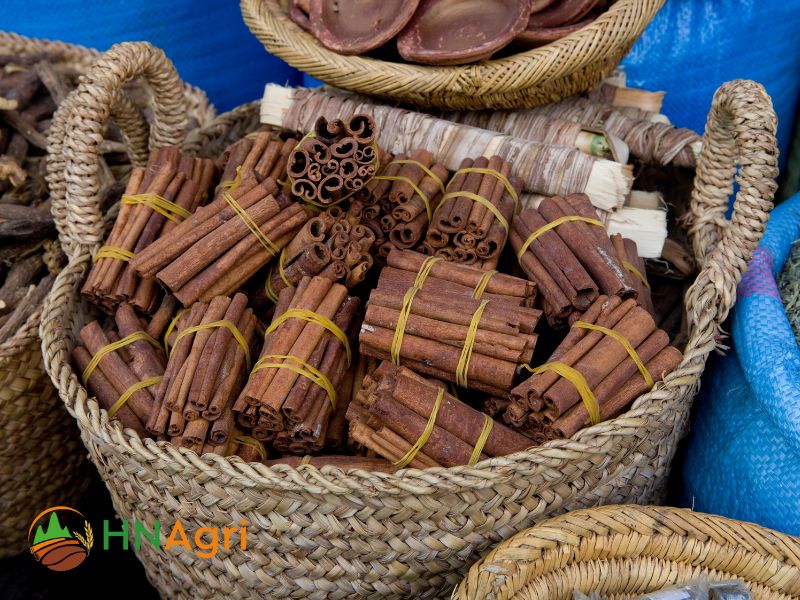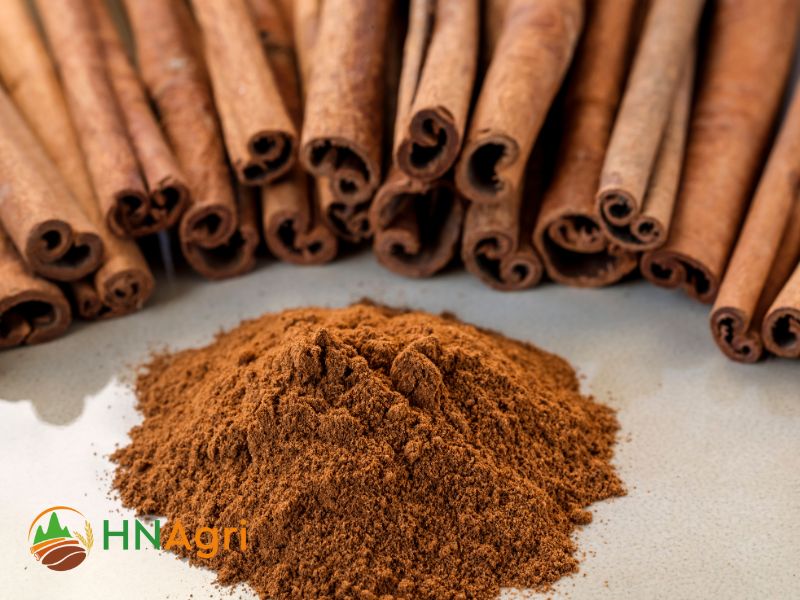Cinnamon from Vietnam is renowned for its rich history and exquisite flavor. The unique cultivation and processing methods used in Vietnam make it the finest cinnamon in the world. In this article, we will explore the fascinating journey of cinnamon from Vietnam, from its cultivation to its use in various culinary delights.
The Art of Vietnamese Cinnamon Cultivation
Cultivating Cinnamon from Vietnam is truly an art form. The Vietnamese cinnamon cultivation begins with carefully selecting the right soil and climate conditions, as these factors greatly influence the flavor and quality of the cinnamon. The cinnamon trees are then planted and nurtured for several years before they are ready to be harvested. During the Vietnamese cinnamon cultivation, the farmers must closely monitor the trees and provide them with the necessary care and attention.
Once the cinnamon trees have reached maturity, the harvesting process begins. Skilled farmers carefully strip the bark from the trees, being careful not to damage the delicate inner layers. This bark is then left to dry in the sun, allowing it to develop its distinct aroma and flavor.
After the drying process is complete, the cinnamon bark is carefully sorted and graded. Only the finest quality bark is selected for further processing. The bark is then ground into a fine powder or rolled into cinnamon sticks, ready to be used in a variety of culinary creations.
The cultivation and processing methods used in cinnamon from Vietnam ensure that the cinnamon retains its rich flavor and aroma, making it highly sought after by chefs and food enthusiasts around the world. Whether used in sweet desserts, savory dishes, or even beverages, Vietnamese cinnamon adds a unique and delightful touch to any recipe.

Popular uses of Cinnamon from Vietnam
Cinnamon, known as “quế” in Vietnamese, is a popular spice widely used in Vietnam for its unique flavor and various health benefits. Here are some popular uses of cinnamon in Vietnam:
- Culinary Delights: Cinnamon is a key ingredient in many traditional Vietnamese dishes and beverages. It adds a warm, sweet, and aromatic flavor to soups, stews, curries, and desserts. Cinnamon is commonly used in pho (Vietnamese noodle soup), and various rice dishes.
- Herbal Remedies: In Vietnamese traditional medicine, cinnamon is highly regarded for its medicinal properties. It is believed to have anti-inflammatory, antibacterial, and antifungal properties. Cinnamon is often used to alleviate digestive issues, improve circulation, and boost the immune system.
- Tea Infusions: Cinnamon tea is a popular beverage in Vietnam, especially during colder months. The tea is made by steeping cinnamon sticks in hot water, resulting in a fragrant and comforting drink. Cinnamon tea is believed to have calming properties and is often enjoyed for its soothing effects.
- Fragrance and Aromatherapy: The warm and inviting scent of cinnamon is used in Vietnam for its aromatic properties. Cinnamon from Vietnam is commonly used in potpourri, scented candles, and essential oil blends. The scent of cinnamon is believed to promote relaxation, reduce stress, and create a cozy atmosphere.
- Traditional Festivals: Cinnamon from Vietnam holds cultural significance, particularly during the Lunar New Year (Tết) celebrations. Cinnamon branches and leaves are often used to decorate homes, altars, and temples during this festive period. The aroma of cinnamon is believed to ward off evil spirits and bring good luck for the new year.

the-story-behind-the-finest-cinnamon-from-vietnam-3
Everything about buying cinnamon from Vietnam
It is essential to know about some ways to buy quality cinnamon from Vietnam and avoid scam cinnamon traders.
How to buy cinnamon from Vietnam
Here are some measures you can take if you want to purchase Vietnamese cinnamon:
- Look into Reputable Suppliers: Look into reliable Vietnamese cinnamon importers or exporters as a starting point. Find businesses that specialize in the trading of spices and have a solid reputation for producing high-quality goods and timely delivery.
- Suppliers to contact: Get in touch with the suppliers you’ve located. Ask them about their cinnamon offerings, such as the varieties of cinnamon they offer, packaging choices, costs, and minimum order sizes. If you can, ask for samples to check the product’s quality prior to making a larger purchase.
- Compare Prices and Terms: Evaluate the costs of shipping and the terms offered by various vendors. Think about things like product quality, packaging, delivery schedules, and payment alternatives. This will enable you to choose the supplier that best suits your needs and make an informed decision.
- Place an Order: After deciding on a supplier, let them know the specifics of your order, such as the quantity, type of cinnamon from Vietnam, preferred packaging, and delivery address. Give clear instructions about the purchase’s conditions, such as payment options and shipping schedules.
- Organize Shipping and Customs: Collaborate with the supplier to plan shipping and make certain that all criteria for customs documentation are completed. Providing import licenses, origin certificates, or any other required documentation is one example of this.
- Track the Shipment: Keep in touch with the Vendor to learn how your shipment is progressing. Obtain tracking details so you can keep an eye on the package and guarantee its prompt arrival.
How to avoid scam Vietnam cinnamon suppliers
Here are some suggestions to bear in mind when dealing with Vietnamese cinnamon providers to prevent scams:
- Verify your findings after conducting a thorough investigation on the source. Check their website, contact information, and any online testimonials or reviews that may be accessible. Look for providers who have a solid track record and a good reputation in the marketplace.
- Request Samples: Before placing a significant order, ask for samples of the cinnamon from Vietnam to assess its authenticity and quality. Genuine vendors are frequently prepared to offer samples for analysis and inspection.
- Direct Communication: Start a direct line of communication with the supplier. Ask questions, go through the specifics of the product, and get any uncertainties cleared up. Take note of their promptness, professionalism, and eagerness to respond to your questions.
- Avoid Unreasonably Low costs: Be wary of vendors who offer improbably low costs that seem unreal. Low pricing are sometimes used by con artists to entice victims. Be aware of considerable price differences compared to other reliable vendors because high-quality cinnamon has a price.
- Use safe payment options that provide buyer protection, like escrow services or online payment systems with dispute resolution processes. Avoid sending money through unsafe channels or through means that offer no recourse in the event of a dispute.


